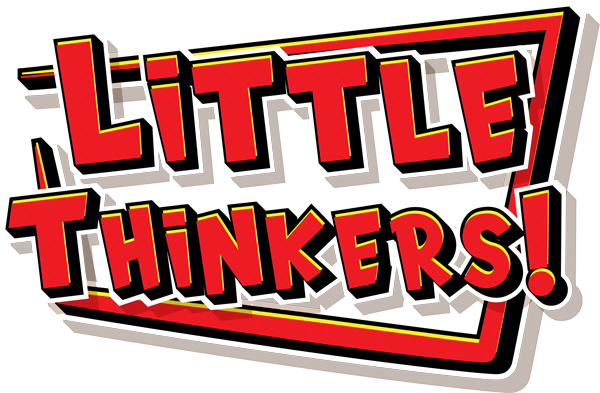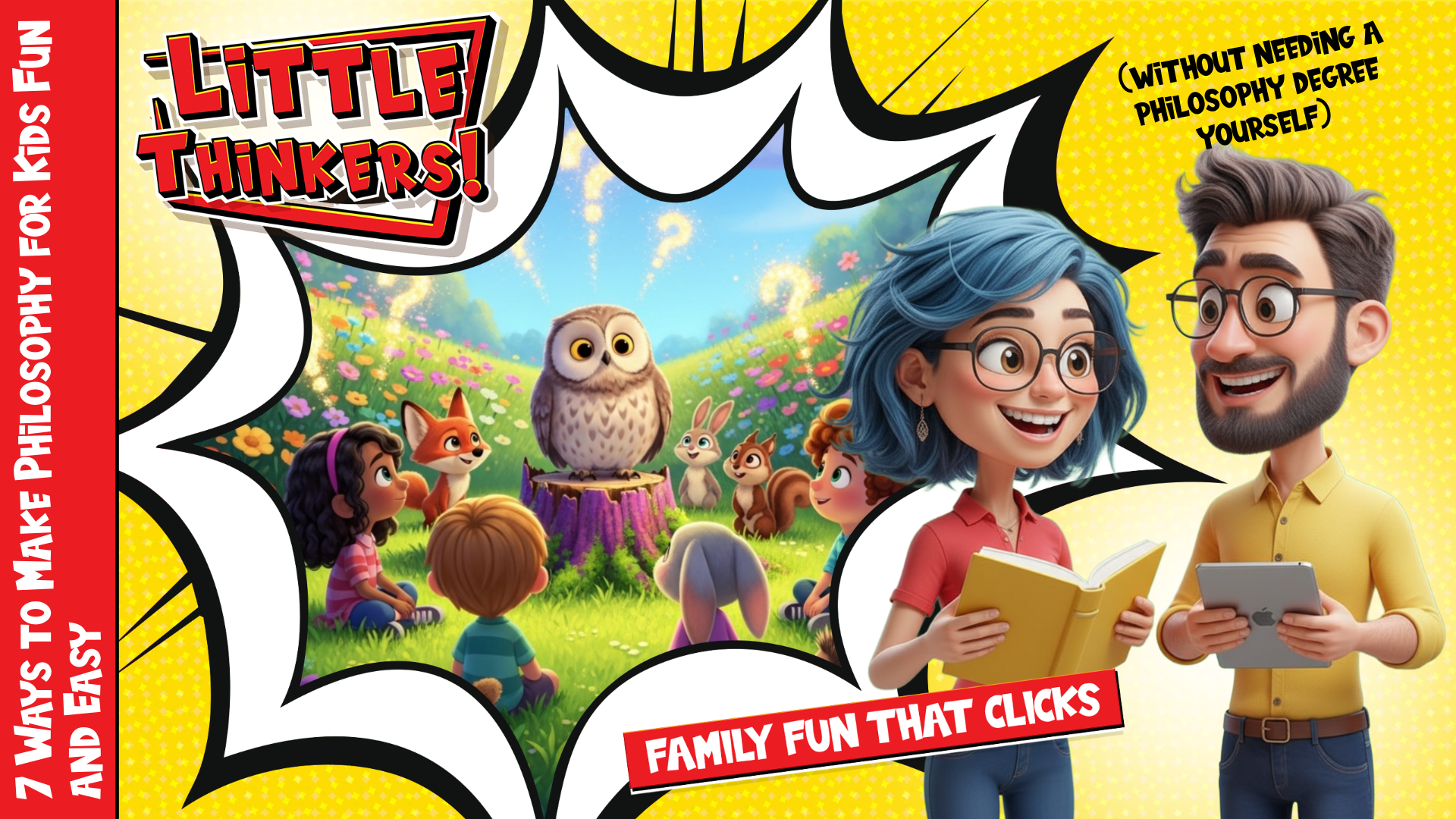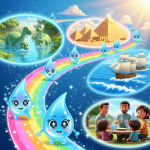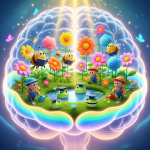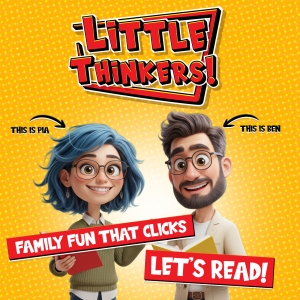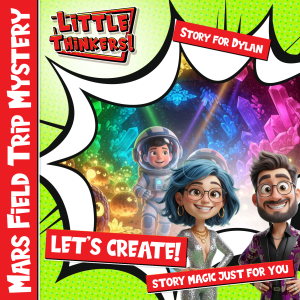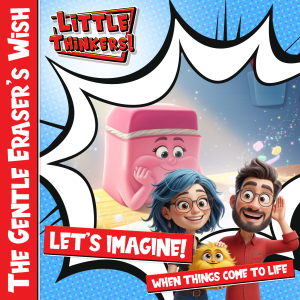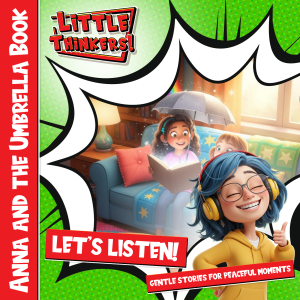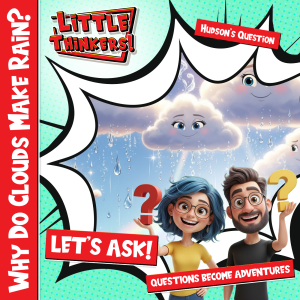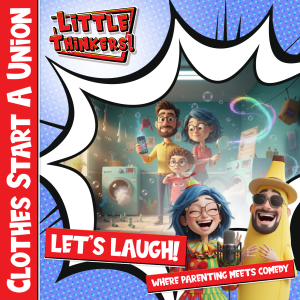Why Philosophy for Kids Isn’t as Scary as It Sounds
Picture this: Your 6-year-old asks “What makes something real?” while poking their invisible friend at breakfast. Your first thought? “Oh no, we’ve entered the philosophy zone!” But here’s the thing – philosophy for kids isn’t about dusty books or complicated theories. It’s about celebrating the natural curiosity that makes children ask “Why?” seventeen times in a row.
Kids are born philosophers. They question everything, wonder about the impossible, and think outside every box you didn’t even know existed. While we adults have trained ourselves to accept that “the sky is blue” (end of discussion), children want to know WHY it’s blue, WHAT makes it blue, and WHETHER it’s the same blue for everyone.
What Exactly Is Philosophy for Kids?
Philosophy for kids is simply the art of thinking about thinking – and having a blast while doing it! It’s about turning those random “But why?” moments into exciting adventures of discovery. Instead of shutting down curious questions with “Because I said so,” philosophy for kids encourages us to dive deeper into the wonderful weirdness of existence.
Think of it as mental playground equipment for growing brains. Just like swings help develop physical coordination, philosophical questions help develop mental flexibility, critical thinking, and the kind of creativity that makes kids come up with solutions adults never considered.
Quick Reality Check for Parents
Before you panic about not knowing the difference between Plato and Play-Doh, remember: you don’t need to have all the answers. In fact, the best philosophical conversations happen when everyone is wondering together. Your job isn’t to be the wise guru on the mountain – it’s to be the curious companion on the adventure.
The Magic of Big Questions in Small Minds
Children’s brains are incredibly good at philosophical thinking because they haven’t learned yet that some questions are “too hard” or “don’t have answers.” They approach big questions with the same enthusiasm they bring to choosing between chocolate and vanilla ice cream – with serious consideration and absolutely no fear of being wrong.
When a child asks “Do animals have feelings?” or “What if colors looked different to everyone?”, they’re not trying to stump you. They’re genuinely curious about how the world works, and they trust you enough to explore these mysteries together. Philosophy for kids harnesses this natural wonder and turns it into a superpower for critical thinking.
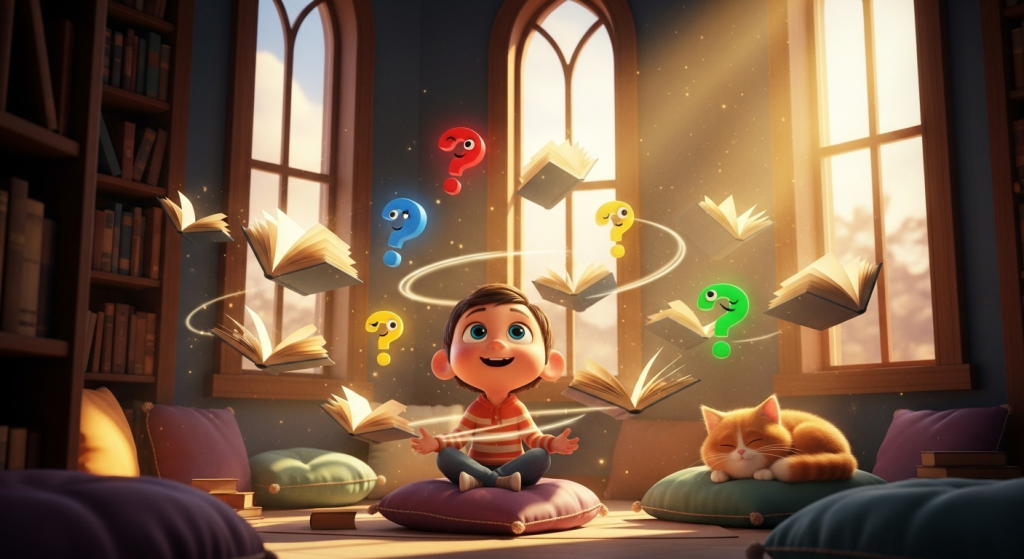
The Science Behind Little Philosophers
Here’s something that might surprise you: research shows that children are naturally better at certain types of philosophical thinking than adults! While we grown-ups get caught up in “the way things are supposed to be,” kids approach problems with fresh eyes and unlimited imagination.
Studies in cognitive development reveal that philosophical thinking helps children develop executive function skills – basically, the mental muscles they need for problem-solving, flexible thinking, and self-control. When kids engage with thought-provoking questions and wonder-filled activities, they’re not just having fun – they’re building the foundation for lifelong learning.
How Philosophical Thinking Develops Young Brains
Philosophy for kids works like cross-training for the mind. When children grapple with questions like “What makes someone a good friend?” or “Is it possible to be completely fair?”, they’re exercising multiple brain regions simultaneously. They’re practicing empathy, logic, creativity, and communication all at once.
The beautiful thing about philosophical discussions is that there’s no pressure to get the “right” answer. This creates a safe space for children to take intellectual risks, share wild ideas, and learn that thinking can be both challenging and enjoyable. It’s like giving their brains permission to play while secretly building incredible cognitive strength.
The Confidence Connection
Children who engage in philosophical thinking often develop stronger self-confidence and better communication skills. When kids realize their thoughts and questions matter – that adults actually want to hear their ideas about life, fairness, and existence – they start seeing themselves as capable thinkers whose opinions have value.
Why Traditional Education Sometimes Misses the Mark
Most school subjects teach children what to think about specific topics. Philosophy for kids is different – it teaches them how to think about everything. Instead of memorizing facts about ancient Greece, philosophical thinking helps kids understand concepts like justice, friendship, and truth that apply to their daily lives.
This doesn’t mean traditional learning isn’t important! But philosophy for kids fills in the gaps by developing critical thinking skills that make everything else more meaningful. When children learn to question assumptions and consider multiple perspectives, they become better students, friends, and future citizens.
The research is clear: children who engage in philosophical discussions show improvements in reasoning abilities, creativity, and even academic performance across subjects. They learn to listen carefully, express ideas clearly, and consider viewpoints different from their own – skills that serve them well throughout life.
The Philosophy Explorer Game
Explore big questions that make you think!
Click "New Question" to start your philosophical adventure!
Thinking Prompts:
Questions Explored: 0
Imagine impossible worlds and explore big ideas!
Click "New Scenario" to enter a world of imagination!
Think About This:
Scenarios Explored: 0
Create your own ideas about big concepts!
Choose a concept to explore:
Concepts Explored: 0
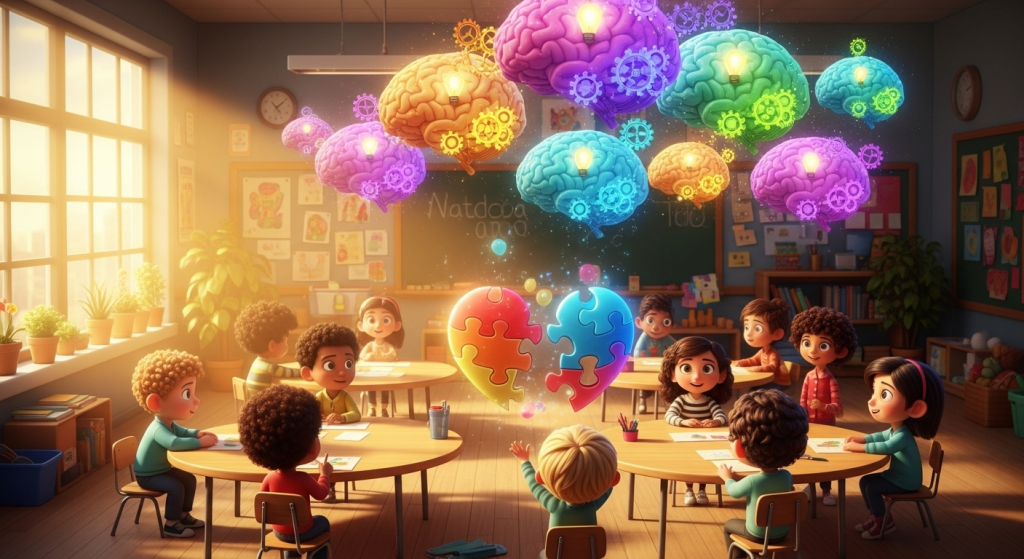
7 Foolproof Ways to Spark Philosophical Wonder
Ready to transform everyday moments into philosophical adventures? These seven strategies will help you introduce philosophy for kids without needing a PhD in ancient wisdom or a library of heavy books. The best part? Most of these activities disguise deep thinking as pure fun.
1. The “What If” Game That Never Ends
Start conversations with “What if” questions that make kids’ imaginations go wild. “What if animals could talk – what would your pet say about you?” or “What if you could only keep five things in the whole world – what would they be and why?” These questions naturally lead to discussions about values, relationships, and what really matters.
The beauty of “What if” scenarios is that they remove the pressure of reality while encouraging deep thinking about real concepts. Kids can explore ideas about fairness, friendship, and identity through the safe lens of imagination.
Pro Tip for Busy Parents
Car rides are perfect for “What if” games! The enclosed space creates intimacy, there are no distractions, and if the conversation gets too deep, you can always blame traffic for needing to concentrate on driving. Plus, kids can’t escape to their rooms when you ask if they think robots could ever have feelings.
2. Turn Bedtime Stories into Think Time
After reading any story, ask questions that go beyond “What happened?” Try “Do you think the character made the right choice?” or “What would you have done differently?” These discussions help children think about moral choices, consequences, and different ways of solving problems.
Even simple stories become rich philosophical material when you dig a little deeper. “The Three Little Pigs” becomes a conversation about planning, hard work, and whether the wolf was really the villain or just very hungry and misunderstood.
3. Create a Family Philosophy Circle
Designate one evening a week as “Big Question Time” where everyone shares something they’ve been wondering about. Make it special with a talking stick (or talking spoon – whatever works), cozy blankets, and the rule that all questions are welcome, no matter how silly they might seem.
The key is creating an atmosphere where thinking together feels special, not like school homework. Some families light a candle, others make special snacks, and some just pile on the couch together. The ritual matters less than the consistency and the feeling of safety to share big thoughts.
4. Philosophy Through Art and Drawing
Ask kids to draw abstract concepts like “happiness,” “fairness,” or “friendship.” As they create, they naturally think deeply about what these ideas mean to them. The conversations that emerge while they’re drawing often reveal surprising insights about how children understand the world.
Don’t worry if their drawing of “justice” looks like a purple dinosaur wearing a superhero cape. The point isn’t artistic accuracy – it’s the thinking process that happens while they try to represent invisible ideas in visible ways.
Mess-Free Alternative
If art supplies make you nervous, try the “invisible drawing” game where kids trace concepts in the air while describing what they’re drawing. It’s all the philosophical benefit with zero cleanup required, and the gestures often reveal even more about their thinking than actual drawings would.
5. The Daily Wonder Hunt
Challenge your family to notice one thing each day that makes them wonder. Maybe it’s why some people like spicy food while others don’t, or whether plants feel lonely, or how music can make people cry. Share these wonderings at dinner or bedtime, and celebrate the questions as much as any answers you might discover together.
This practice helps children develop the habit of philosophical thinking in everyday moments. Instead of just accepting the world as it is, they start noticing the mysteries and questions that surround us constantly.
6. Use Movies and TV as Philosophy Starters
After watching shows or movies together, ask questions about the characters’ choices and motivations. “Was that character brave or just reckless?” or “Do you think they were really friends, or just being nice to each other?” help children think critically about relationships, courage, and authenticity.
Even animated movies offer rich material for philosophical exploration. The key is asking questions that help kids think beyond the surface story to the bigger ideas underneath.
7. Practice the Art of Wondering Together
When your child asks a question you don’t know how to answer, resist the urge to Google it immediately. Instead, wonder together: “Hmm, that’s a really interesting question. What do YOU think?” Often, the conversation that follows is more valuable than any factual answer you could provide.
This approach teaches children that not knowing something is the beginning of learning, not the end. It also shows them that their ideas and theories matter, even if they’re not “correct” in a traditional sense.
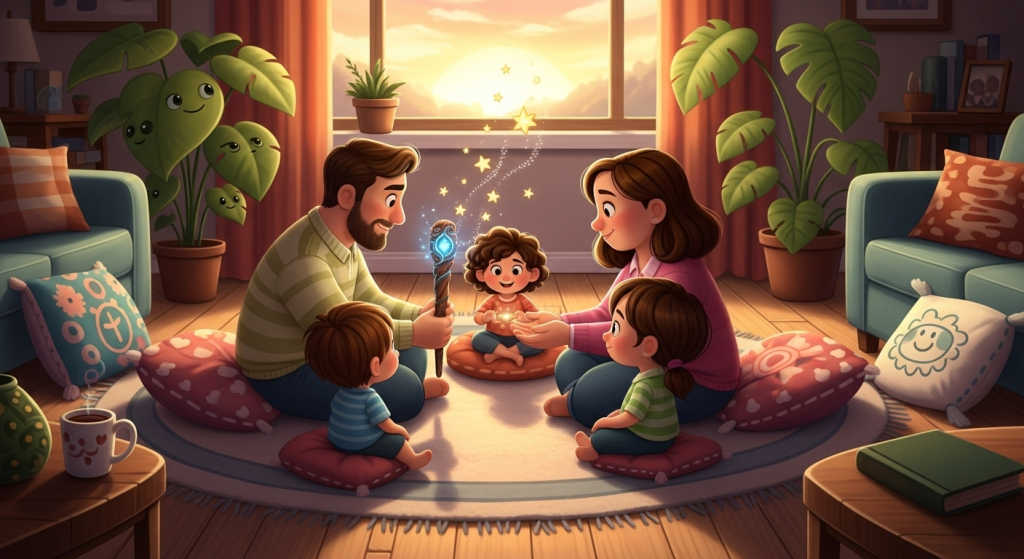
Making Philosophy Stick (Without Anyone Noticing)
The secret to successful philosophy for kids is making it feel like play, not school. When children associate deep thinking with fun, curiosity, and connection, they develop a lifelong love of learning and questioning that serves them in every area of life.
Common Questions Parents Actually Ask
“My child asks the same philosophical question over and over. Should I be worried?”
Not at all! Repetition is how children process complex ideas. Each time they ask “What happens when we die?” or “Why do people get sick?”, they’re building understanding layer by layer. Keep engaging with patience and curiosity – they’re doing important mental work.
“What if I give the wrong answer to a deep question?”
Here’s the liberating truth: in philosophy for kids, there often isn’t one “right” answer! Your job isn’t to be an encyclopedia – it’s to be a thinking partner. Saying “I don’t know, but here’s what I wonder about that…” teaches children that uncertainty can be exciting, not scary.
“How young is too young for philosophical thinking?”
If a child can ask “Why?”, they’re ready for philosophy! Three-year-olds who wonder why we can’t see air, or four-year-olds who ask if their teddy bear has dreams, are already engaged in philosophical thinking. You’re just giving structure and encouragement to natural curiosity.
Emergency Philosophy Kit for Overwhelmed Parents
Keep these three questions in your back pocket for any situation: “What do you think about that?”, “Why do you think that happens?”, and “What would happen if…?” These magical phrases can turn any moment into a philosophical conversation without requiring any preparation or expertise on your part.
“My partner thinks philosophy is too complicated for kids. How do I convince them?”
Start small and let results speak for themselves. Try one “What if” question during dinner and watch how engaged your children become. Most skeptical partners become believers when they see their kids thinking creatively and expressing ideas they never knew they had.
Building a Wonder-Filled Family Culture
Philosophy for kids works best when it becomes part of your family’s natural rhythm, not an add-on activity. When questioning, wondering, and thinking together become as normal as brushing teeth, children internalize the message that their minds are powerful tools for understanding the world.
The families who succeed with philosophical thinking are those who create space for big questions in small moments. They celebrate curiosity as much as correct answers, and they model the kind of open-minded thinking they want to see in their children.
Remember, you’re not trying to raise the next Socrates (though that would be pretty cool). You’re simply nurturing the natural philosophical instincts that make childhood so magical. Every time you engage with your child’s deep questions, you’re telling them their thoughts matter and their curiosity is valuable.
Where to Go from Here
Ready to dive deeper into the wonderful world of philosophical thinking with your family? Start with one strategy that feels natural to you – maybe it’s bedtime question time, or perhaps car ride “What if” games appeal to your family’s style.
If your children love storytelling and audio adventures, explore our collection of thought-provoking stories designed to spark exactly these kinds of conversations. And when your little philosophers come up with questions that stump the whole family, they can always share their biggest wonderings with our community of curious minds.
The journey of philosophical thinking is one of the greatest gifts you can share with your children. It costs nothing, requires no special equipment, and pays dividends in creativity, critical thinking, and confidence for years to come. Plus, you might just rediscover your own sense of wonder along the way – and that’s worth more than any philosophy degree!
